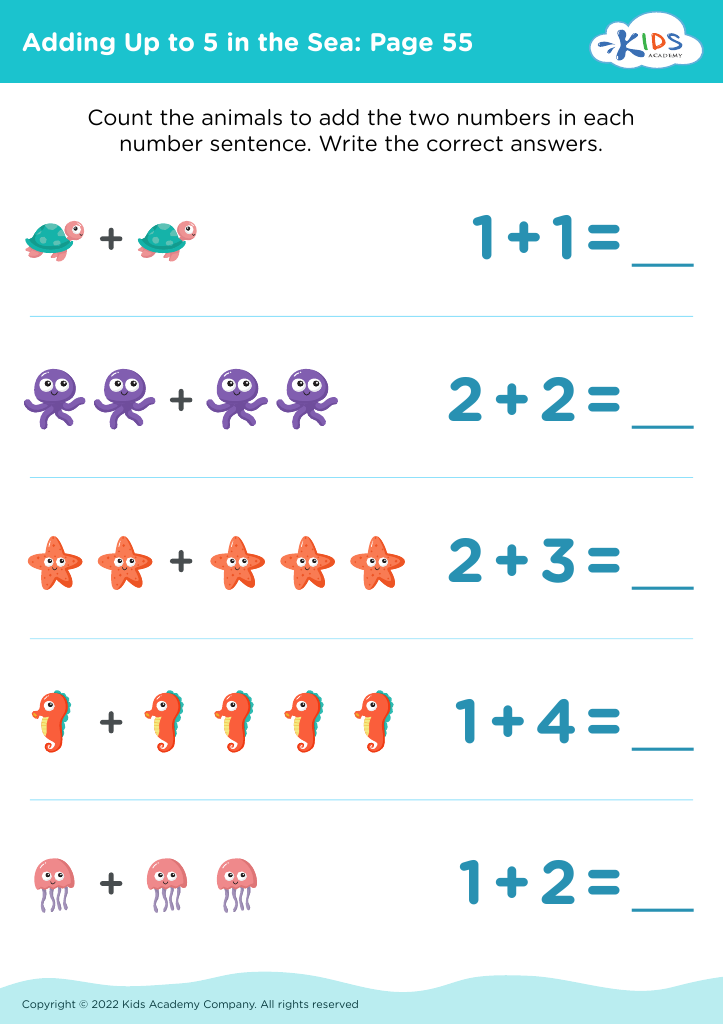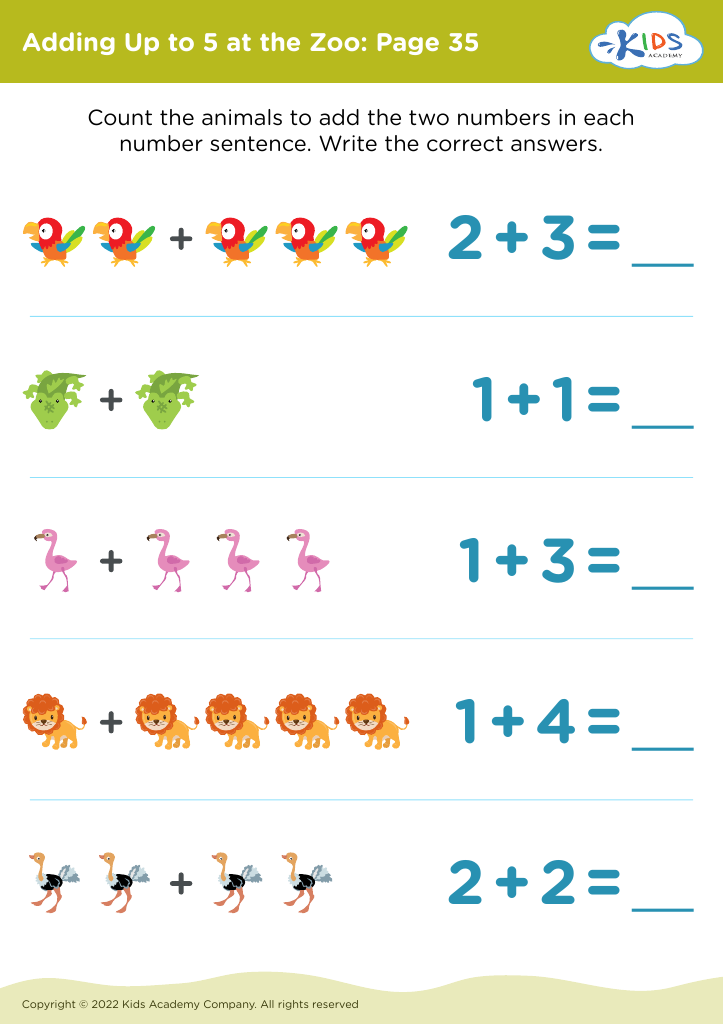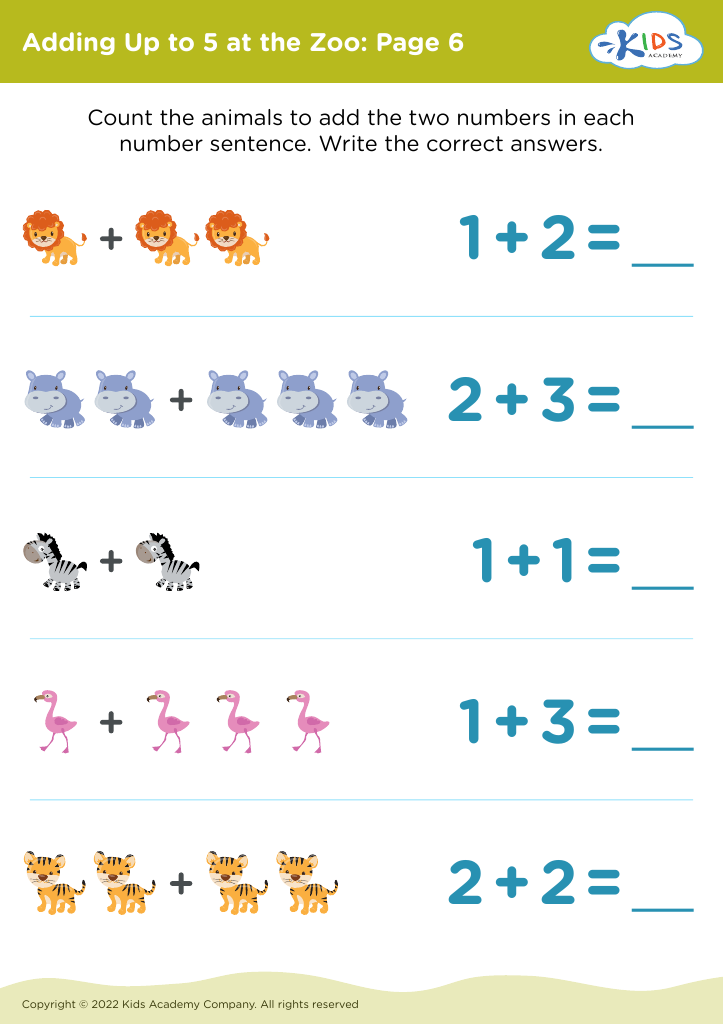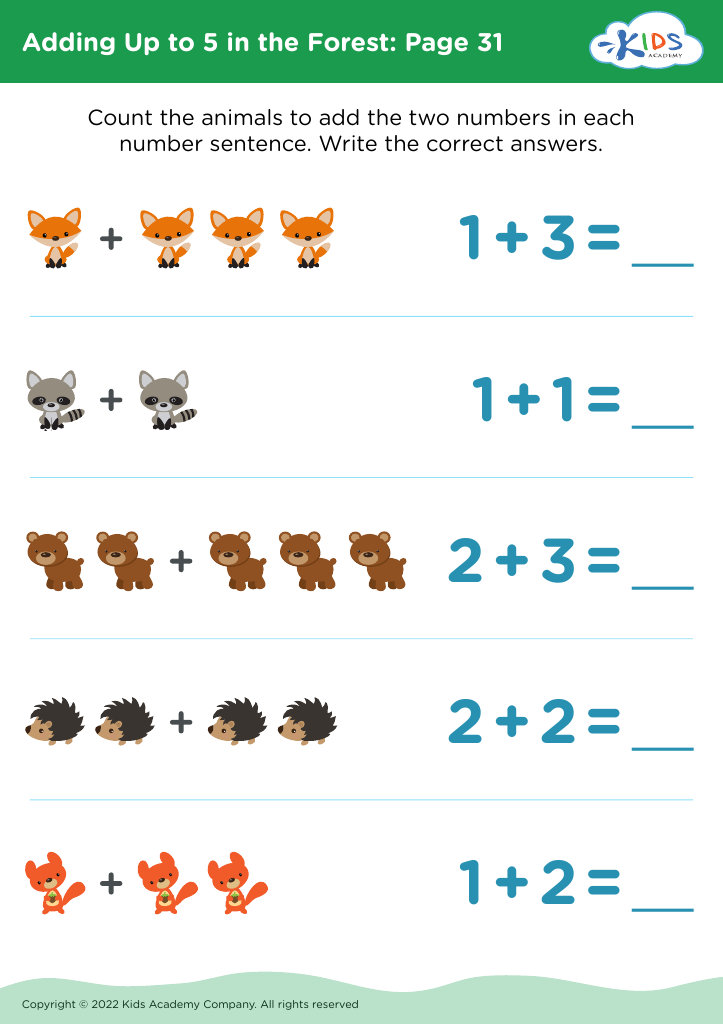Enhances concentration Math Worksheets for Ages 3-4
4 filtered results
-
From - To
Introducing our Enhances Concentration Math Worksheets for Ages 3-4! Specially designed to capture and hold the attention of young minds, these worksheets help develop essential math skills while improving concentration. Packed with fun, engaging exercises, they'll boost number recognition, counting, shapes, and problem-solving abilities. Our colorful, easy-to-follow worksheets promote focus and persistence, making learning enjoyable and effective. Perfect for both parents and educators aiming to provide a solid math foundations for preschoolers, our resources ensure your child stays ahead and fully prepared for future academic success. Unlock your child's potential with our expert-crafted concentration-enhancing math worksheets today!
Parents and teachers should care about enhancing concentration in math for children aged 3-4 because early childhood is a critical period for cognitive development. At this stage, children's brains are highly malleable, meaning they can quickly absorb and adapt to new information. Concentration is a fundamental skill that supports all areas of learning, particularly math, which requires focus and mental clarity.
Enhancing concentration in math for young children helps establish a strong foundation for future academic success. Math is not just about numbers; it nurtures problem-solving skills, logical thinking, and spatial awareness. By improving concentration, children can better understand and manage basic math concepts such as counting, shapes, patterns, and simple arithmetic. These early experiences can set the stage for more complex mathematical learning.
Moreover, fostering concentration and engagement in math activities helps cultivate a positive attitude toward learning. Children who find joy and accomplishment in tackling math challenges are more likely to develop a lifelong love for the subject. Consequently, they will be better prepared to face the increasing complexity of math in higher grades. For both parents and teachers, investing time and effort to enhance concentration and math skills in early childhood is a crucial step toward supporting each child’s educational journey and cognitive development.










.jpg)














